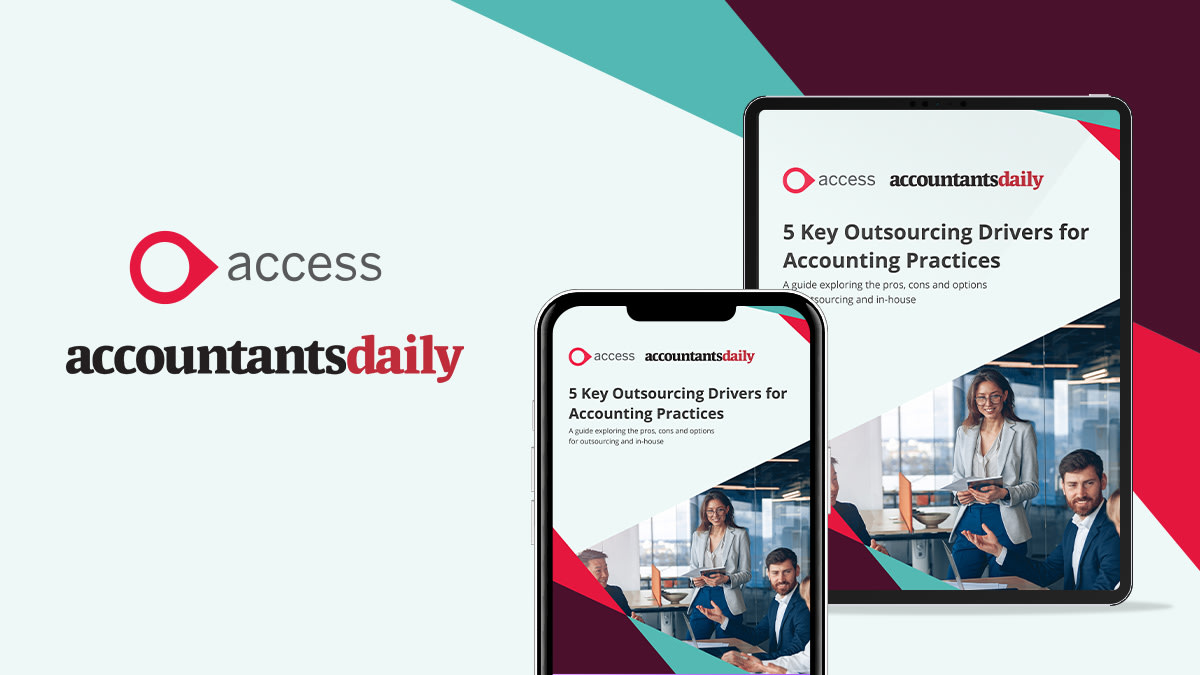5 Key Outsourcing Drivers for Accounting Practices

Deciding which accounting tasks to perform in-house and which tasks to outsource to an expert provider is a choice with which all accounting practices must grapple.
If you’re still trying to figure out which services you might need to keep in-house or outsource to ultimately generate greater revenue and margin for your practice, then this free guide is a must-read for you.
It is important to build a clear picture of how much internal cost, time and resources you’ll need to dedicate to both options, and we will reveal all that and more.
Upskilling or training in-house can be a time-consuming and costly process for accounting practices and comes with the expectation that existing practice staff will be high performing enough to wear many hats. Practices in a position to recruit new staff in-house are likely to be searching for a particular skill set along with a personality that easily aligns with their values.
Outsourcing some tasks and jobs has become a popular option for accounting practices of all sizes due to the more scalable approach than hiring staff in-house and the potential to reduce always-on business, boost productivity and unlock overall business growth.

Some accounting services that are commonly outsourced include:
- Bookkeeping
- Compliance: client accounting and tax
- SMSF
- Audits
So that we can compare the pros and cons of in-house and outsourcing, we’re going to unpack five key drivers for accounting practices: cost, security, control, scalability and people.
Download the free guide NOW before making any decisions on your next staffing move without all the information!
 Login
Login




